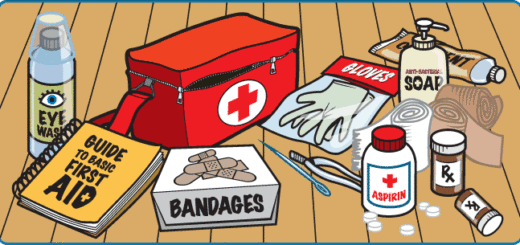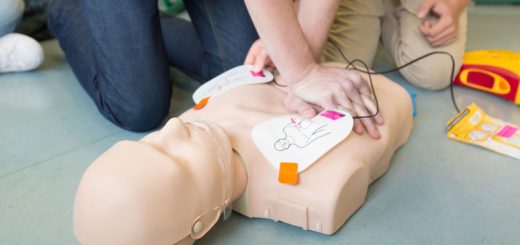Common medical terms for first aiders and first responders
First aiders and first responders need to have a basic understanding of medical terminology. Here’s our list of common medical terms and what they mean. Please leave a comment on this post if you would like to add a term to this list!
Apnoea – Suspension of breathing
Allergenic – Can provoke an allergic reaction
Bradycardia – A slow heart rate, usually defined as <60 beats per minute
Cardio – Medical term to reference the heart
Dyspnea – Shortness of breath
Epistaxis – Nose bleed
Haemoptysis – Coughing up blood
Hematemesis – Vomiting blood
Hematuria – Blood in the urine
Hypertensive – High blood pressure
Hypotensive – Low blood pressure
Ischemia – Inadequate blood supply (circulation) to a local area due to blockage of the blood vessel to the area
Jaundice – Yellow discolouration of the skin, disease causing the discolouration
Lucid interval – A temporary improvement in a patient ‘s condition after a traumatic brain injury, after which the condition deteriorates
Melena – Blood in the stool
Peritonitis – Inflammation of the lining of the abdominal cavity
Phlebitis – Inflammation of the vein, which can lead to the formation of a blood clot
Pleurisy – Inflammation of the pleural membrane
Pyrexia – Higher than normal body temperature
Postictal – Period of confusion and disorientation following an epileptic seizure
Renal – Relating to the kidney
Signs – Things that can be observed
Spondylitis – Inflammation of the spine
Spondylosis – A degenerative condition related to spinal vertebra
Syncope – Fainting, a sudden, usually temporary, loss of consciousness generally caused by insufficient oxygen in the brain
Symptoms – Sensations that can be felt by the casualty
Tachycardia – Rapid heart rate defined as >100 beats per minute
Thrombosis – The forming of a blood clot inside a blood vessel
Toxemia – Poisoning of the blood by the absorption of toxins
Tuberculosis – Infectious disease produced by the tubercle bacillus




